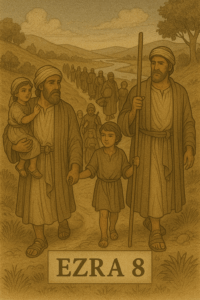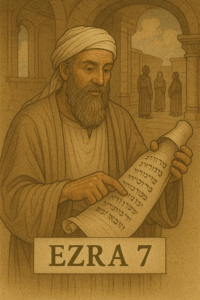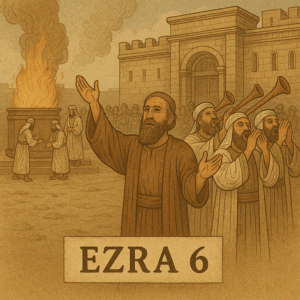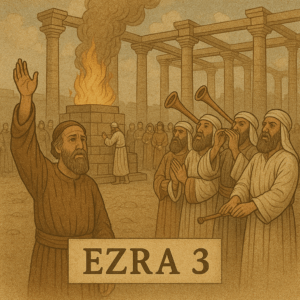Judges Chapter 11 tells the story of Jephthah, a judge of Israel known for his courageous leadership and his tragic vow. This chapter presents an narrative of conflict, faith, and the consequences of rash promises, providing deep insights into human nature and divine deliverance.
Jephthah’s background and rise to leadership.
The chapter begins by introducing Jephthah, a Gileadite warrior who is described as a “mighty man of valor.” However, his background is complicated—he is the son of Gilead and a prostitute, which leads to his rejection by his half-brothers. Driven away from his father’s house, Jephthah becomes a leader of a group of outlaws in the land of Tob.
When the Ammonites wage war against Israel, the elders of Gilead seek Jephthah’s help. Initially reluctant due to their previous mistreatment of him, Jephthah eventually agrees after the elders promise to make him their leader if he secures victory over the Ammonites. This sets the stage for Jephthah’s role as a judge and deliverer of Israel.
Negotiations with the Ammonites.
Before engaging in battle, Jephthah attempts to resolve the conflict through diplomacy. He sends messengers to the king of the Ammonites, questioning their reason for attacking Israel. The Ammonite king claims that Israel took their land when they came out of Egypt. Jephthah responds with a detailed historical account, explaining that Israel took the land from the Amorites, not the Ammonites, and that the land was given to them by God. However, the king of the Ammonites disregards Jephthah’s message, and war becomes inevitable.
Jephthah’s vow and the battle.
Empowered by the Spirit of the Lord, Jephthah leads Israel into battle against the Ammonites. Before going to war, he makes a vow to the Lord, promising that if God grants him victory, he will offer as a burnt offering whatever comes out of the door of his house to meet him upon his return.
God grants Jephthah victory over the Ammonites, delivering a decisive blow and liberating Israel from their oppression. However, the joy of victory is overshadowed by the consequences of his rash vow.
The tragic fulfillment of the vow.
When Jephthah returns home, his only child, his daughter, comes out to meet him with timbrels and dancing. This moment becomes one of the most poignant in the Bible, as Jephthah realizes the gravity of his vow. Despite his daughter’s shock and sorrow, she urges her father to fulfill his promise to the Lord. After allowing her two months to mourn her fate in the mountains with her friends, Jephthah fulfills his vow, and the narrative concludes with a note that the daughters of Israel commemorated her annually.
Theological reflections.
Judges Chapter 11 offers great lessons on faith, leadership, and the importance of careful speech. Jephthah’s story reminds readers that while God honors faith and courage, rash vows and promises can lead to unintended and tragic consequences. It underscores the necessity of thoughtful commitments and a deep understanding of God’s will.
The impact of Judges chapter 11.
This chapter is an exploration of human fallibility and divine sovereignty. Jephthah’s victory and the subsequent fulfillment of his vow serve as a sobering reminder of the complexities of faith, leadership, and the serious nature of promises made to God.




